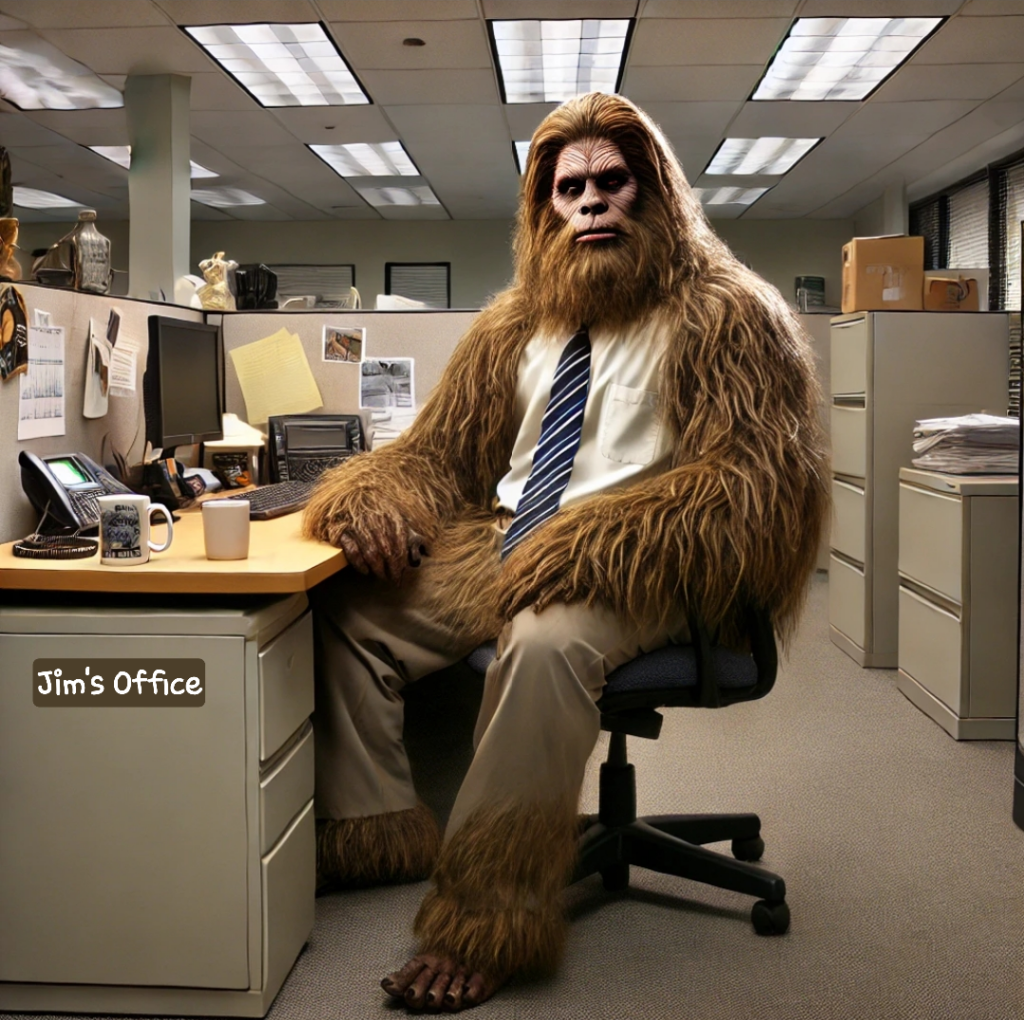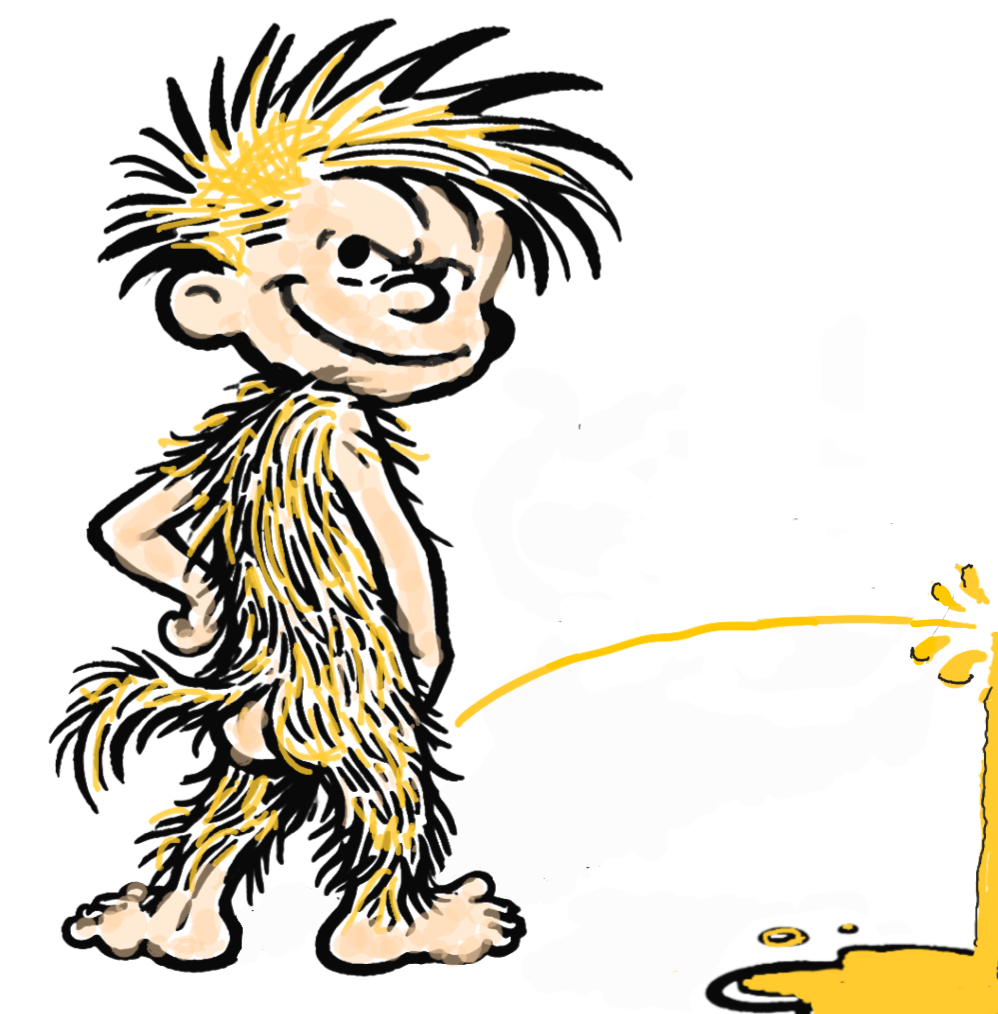A Hairy Tale of Wisdom and Woe
Deep in the uncharted wilderness, past the reach of 5G signals and human common sense, lives a creature of extraordinary intelligence—a Sasquatch so enlightened, so profoundly wise, that his every grunt contains the secrets of the cosmos. But do humans listen? Of course not.
Much like an all-knowing husband who foresees disaster before his wife even finishes saying, “Oh, it’ll be fine,” this Sasquatch suffers the same fate: being perpetually ignored, dismissed, and conveniently proven right only when it’s far too late.
This is the story of Sasquatch the Scapegoat, the ancient, unshaven sage who knows everything before it happens but is doomed to wander a world that refuses to listen—until someone else says the same thing later, at which point they’ll pretend it’s groundbreaking wisdom.
The Curse of Premature Correctness
Imagine Sasquatch, standing in his moss-covered throne of enlightenment, watching a group of humans fumble through life, making mistakes so obvious that even a cave-dwelling creature with no Wi-Fi can see them coming. He grunts a warning. He gestures dramatically. He carves a prophetic warning into the bark of an ancient tree:
“Beware, ye who build thy home upon the shifting sands of poor decision-making.”
And what do the humans do?
They laugh. They mock. They roll their eyes.
They say things like:
- “Oh, come on, Sasquatch, you always think you’re right.”
- “I just feel like you’re taking this too personally.”
- “Maybe if you said it differently, I’d actually listen.”
Sasquatch sighs. He watches. He waits. And sure enough, three years later, a smooth-talking human with a podcast and a $40 motivational course repeats the very thing he said. And suddenly—miraculously—it is the most profound revelation mankind has ever heard.
Sasquatch stares at the camera like Jim from The Office.
Validation? Nope. Just Convenient Amnesia.
By this point, Sasquatch is accustomed to his lot in life. No one remembers he said it first. No one gives credit where credit is due. Instead, humans act as if they just discovered this wisdom all on their own.
It’s not that they didn’t hear him—it’s that they refused to acknowledge he could possibly be right before they were ready to hear it.
See, humans have this deeply embedded survival instinct called “Reflexive Denial Disorder” (not an actual medical term, but stay with me). It means that when presented with uncomfortable truths, they:
- 1. Deny it outright.
- 2. Get defensive and attack the messenger.
- 3. Pretend it never happened.
- 4. Eventually accept it, but only if it comes from a different source.
So when Sasquatch points out that they’re about to walk off a metaphorical (or literal) cliff, they scoff at him. But when Gandalf, Oprah, or some guy named Kevin says it years later? Instant wisdom.
Why Humans Need External Validation (And Why Sasquatch Is Screwed)
Sasquatch has spent centuries studying human nature, and he’s discovered something tragic: Humans struggle to accept hard truths from familiar sources.
It’s not about whether something is true—it’s about who says it and when.
This is why:
- A husband’s advice is ignored until it’s confirmed by a co-worker.
- A parent’s wisdom is rejected until TikTok validates it.
- A Sasquatch’s warning is dismissed until a fancy TED Talk rebrands it as a “new perspective.”
This means Sasquatch is doomed to a life of premature correctness. He can either:
- Keep speaking the truth, knowing no one will listen.
- Wait for someone else to say it and then pretend he never cared.
- Secretly start a podcast under an alias like “Dr. Hairy McEnlightenment” and rake in millions.
What’s the Lesson Here?
If you’ve ever been the Sasquatch in your own life—offering wisdom only to be ignored, dismissed, or used as a scapegoat—you have two choices:
- 1. Stop expecting people to validate you in real time. (They won’t.)
- 2. Charge them $200 for a seminar when they’re finally ready to hear it.
The truth is, being right too soon is one of the loneliest places to be. It means you have to watch people make mistakes that could’ve been avoided. It means enduring the frustration of knowing they’ll come around eventually, but they’ll never admit that you were the one who saw it first.
And at some point, you have to decide: Do you need them to acknowledge your wisdom, or do you just want to be free from the weight of their denial?
Because Sasquatch doesn’t keep track of who finally gets it. He’s too busy enjoying the peace of the forest, far from the noise of human folly.
And maybe, just maybe—that’s where the real wisdom lies.
Final Thought: A Warning From the Woods
Somewhere out there, Sasquatch is watching us, grunting softly to himself as we continue making the same dumb mistakes. He’s not mad. He’s not even frustrated anymore.
He’s just… tired.
And when the day comes that humans finally wake up and realize he was right all along, do you know what he’s going to do?
Disappear into the mist and let them figure it out on their own.
Discover more from Author Known & A Dumb Idea
Subscribe to get the latest posts sent to your email.




Sasquash is learning!!!